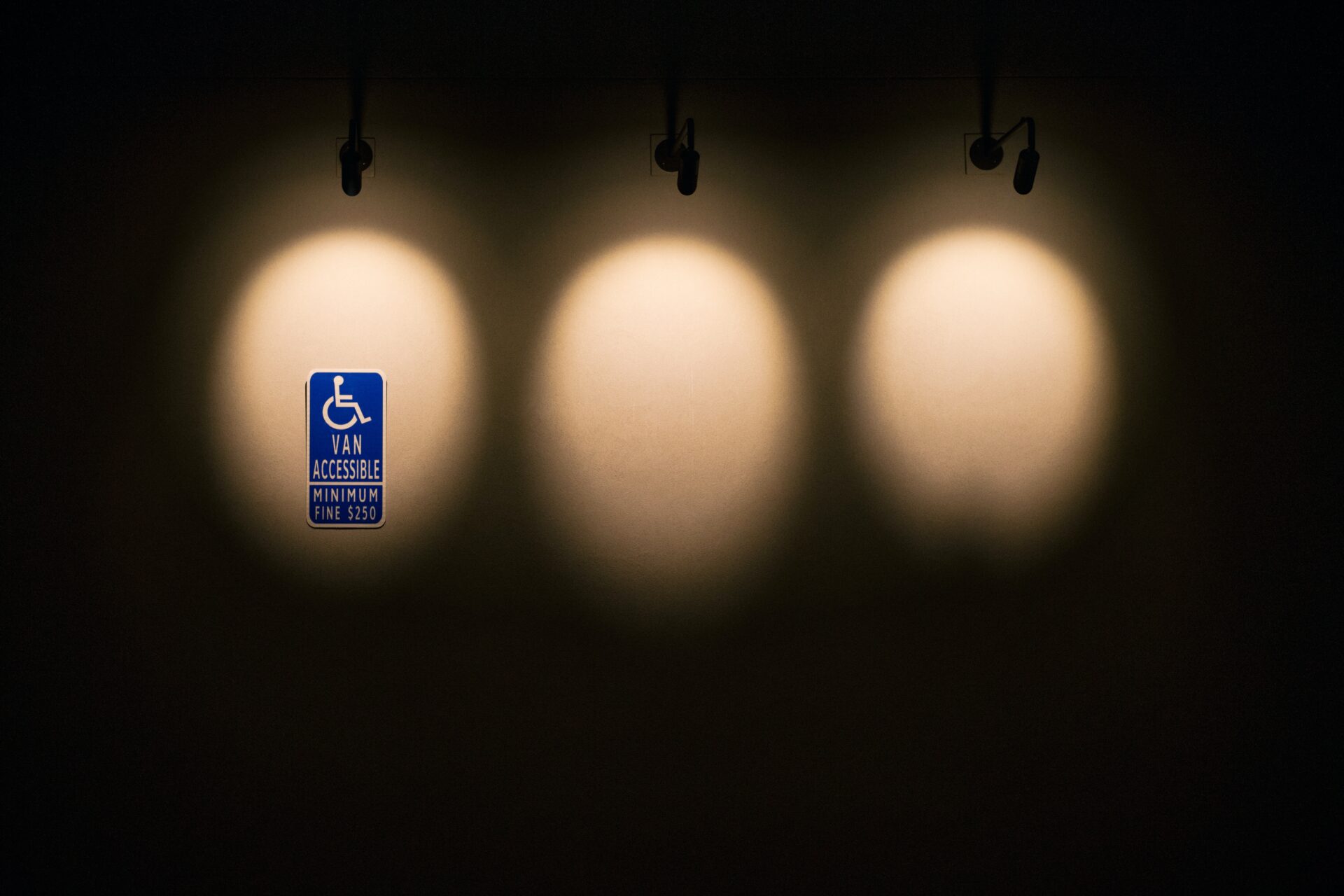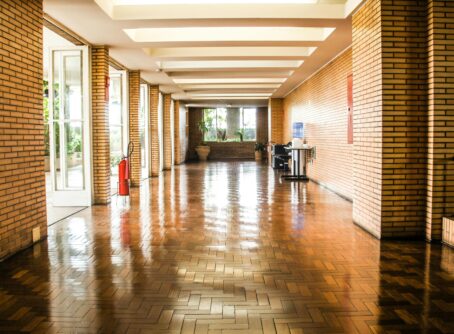
You’re sitting in a wheelchair in front of the U.S. Capitol building in Washington, D.C. The imposing white structure looms overhead with its massive dome and columns. Rows and rows and rows of steps lead up to the grand entrance.
Undeterred, you push yourself out of your wheelchair and onto the steps. Inch by inch, you crawl forward up each stone step. The exertion wears on your arms, and sweat drips down your forehead. But seeing several others following behind you, moving along on all fours, spurs you to continue your ascent.
This experience is what an eight-year-old girl named Jennifer Keelan-Chaffins went through on March 13, 1990. Keelan-Chaffins is one of 60 people who left their wheelchairs and made their way up to Congress as part of the Capitol Crawl. This physical demonstration of inequality inspired legislators to pass the Americans with Disabilities Act (ADA), a landmark law that remains in place today.
But while the Capitol Crawl might sound like an inspiring before-and-after story, people with disabilities like Keelan-Chaffins still encounter obstacles. Many people wonder if the ADA went far enough — and whether it’s time to try and imagine something grander. Christians, who seek restoration in a fallen world, can envision a more just society that allows all people to flourish, including those with disabilities.
Moving Forward with the ADA
Signed into law by President George H.W. Bush on July 26, 1990, the ADA addressed discrimination against people with disabilities in public life. The law aimed to ensure that all U.S. citizens were treated equally under the law regardless of their ability level, making “disability” a protected status along with race, color, sex, national origin, age and religion.
The ADA marked a major milestone in the Independent Living movement. This group of civil rights activists believed that people with disabilities deserved to live with dignity, make their own choices and participate fully in society. In 1978, they created Centers for Independent Living (CILs), community-based, cross-disability non-profit organizations that provide resources to people with disabilities as they seek independence. Following the ADA, over 403 CILs arose across the U.S. CILs also expanded their focus to include advocating for ongoing system-level policy change and protecting the legal rights specified within the ADA.
In addition to laying the groundwork for CILs, the ADA made it illegal to discriminate against people with disabilities. Employers could no longer deny job applicants employment because of a disability, and people with disabilities gained protections in areas like education and transportation. Public spaces, commercial facilities and businesses open to the public became subject to rules laying out acceptable building practices. It became necessary for buildings to feature wheelchair-accessible front entrances, wider doorways and designated accessible parking spaces.
While the ADA changed the legal and physical environment, the law’s greatest impact was on American culture. Throughout history, the public treated people with disabilities as childlike and pitiable. The ADA marked a turning point in which it became ordinary to treat people with disabilities as autonomous beings worthy of respect. It became more readily accepted that these individuals could live independently and make their own decisions.
This shift in thinking comes closer to a Christian approach. Genesis 1:26 says, “Then God said, ‘Let us make mankind in our image, in our likeness, so that they may rule over the fish in the sea and the birds in the sky, over the livestock and all the wild animals, and over all the creatures that move along the ground.'” This verse provides the basis for the biblical concept of Imago Dei, which highlights humanity’s unique status as God’s chosen representatives on Earth, imbued with unique moral and spiritual qualities.
Notably, the Bible does not separate humanity into worthy and unworthy segments. Sometimes, people act as if only non-disabled people should be considered part of God’s perfect design. We must challenge this narrative and continue working toward a world that reflects how God made all people, including people with disabilities, in His image and deserving of dignity.
A Seat at the Table
The ADA represented progress, not the ideal. While the law created minimum compliance standards, it did not wholly erase barriers. For instance, the ADA required building entrances to be unobstructed, but it did not require that buildings be easy to navigate and move through on the inside.
Barriers can prevent citizens from engaging in public life. A healthy democratic process relies on all citizens being able to vote, attend public meetings and participate in civic groups. Anyone who cares about strengthening our democracy should seek to remove barriers.
Physical access remains a fundamental requirement of participation. The Capitol Crawl demonstrated in an unambiguous way that people with disabilities often cannot enter the same space as others without overcoming hurdles. In other words, before one can sit at the table, one must be able to make it to the table.
Although the Capitol Crawl occurred 33 years ago, there are still startlingly similar stories of people having to fight for their seats. In February 2023, a Denver City Councilman, Chris Hinds, attended a debate at Cleo Parker Robinson Dance School, which lacked an accessible stage. Hinds, a wheelchair user, had no choice but to crawl onto the stage before a crowd of onlookers. If Hinds had not participated in the debate, he would have lost $125,000 for his campaign from Denver’s Fair Election Fund.
“It was a choice between my campaign’s viability or my dignity,” Hinds told The Denver Post.
The Need for Stronger Accessibility Practices
People with disabilities like Hinds should not need to choose between maintaining their dignity and participating in public life. To ensure true accessibility, Congress should consider updating the ADA for a new era. Some lawmakers are already working on legislation to require accessibility in the digital world and during airplane travel. Public officials could also incentivize businesses to adopt Universal Design principles and create holistically accessible physical spaces.
It is not enough for legislation to open doors to buildings. We must ensure that people with disabilities can operate effectively once they enter the building. Chicago, the third-largest U.S. city, held a mayoral election earlier this year; only 36 of the city’s polling stations met ADA standards, meaning they had architectural barriers or failed to assist blind and deaf voters. To prevent similar situations, state and local officials must add adaptive technology solutions and support services for people with disabilities to navigate elections and other major public activities.
Organizations do not need to wait for legal change to make a difference. Business leaders can go beyond the ADA by seeking accessible design consultants for office renovations. Schools can use adaptive technology and include accessibility training in their curriculum.
However, these changes will only take place with public support. Citizens must use their voices and encourage community leaders to invest in accessible practices. They must be willing to speak out when they encounter places that are not friendly toward people with disabilities.
Toward an Inclusive Society
As Christians, we must work toward the redemption of civic life. We can aspire to live up to the dream of Lex Frieden, the architect behind the ADA, who believed in inviting people with disabilities to join all aspects of mainstream society. While we have a long way to go to improve upon the world created after the ADA, we can start by recognizing that people with disabilities deserve inclusion, respect, and a place at the table.
The church has an opportunity to serve as a model for this change. Next time you step into your church, consider if an attendee in a wheelchair, an adult with developmental disabilities, or a blind person would feel welcome. Would these individuals be able to participate in the service, attend programs and maneuver throughout the building? If you answered “no” to any of these questions, what changes would you ask your pastor and church leaders to make?
These considerations help us reflect Imago Dei in our daily life and practice. If we believe God made all people in His image, we must act in accordance with this truth. As we aspire to move our society toward a more inclusive, post-ADA place, we can start heading in the right direction by making the church an institution that exemplifies the change we wish to see.
Nathan Slauer is the Annual Fund Manager at Disability Advocates of Kent County, where he handles fundraising efforts, communications, and community events. In addition to working with Disability Advocates, Slauer serves on nonprofit boards & committees, consults on political campaigns, and completes freelance marketing projects. Slauer graduated with a B.A. in Political Science and History from Calvin University, and he is pursuing his Master of Nonprofit Leadership & Philanthropy from Grand Valley University. Slauer’s writing has appeared in Second Wave Media, WKTV Journal, the Rapidian, and Culture Slate.






